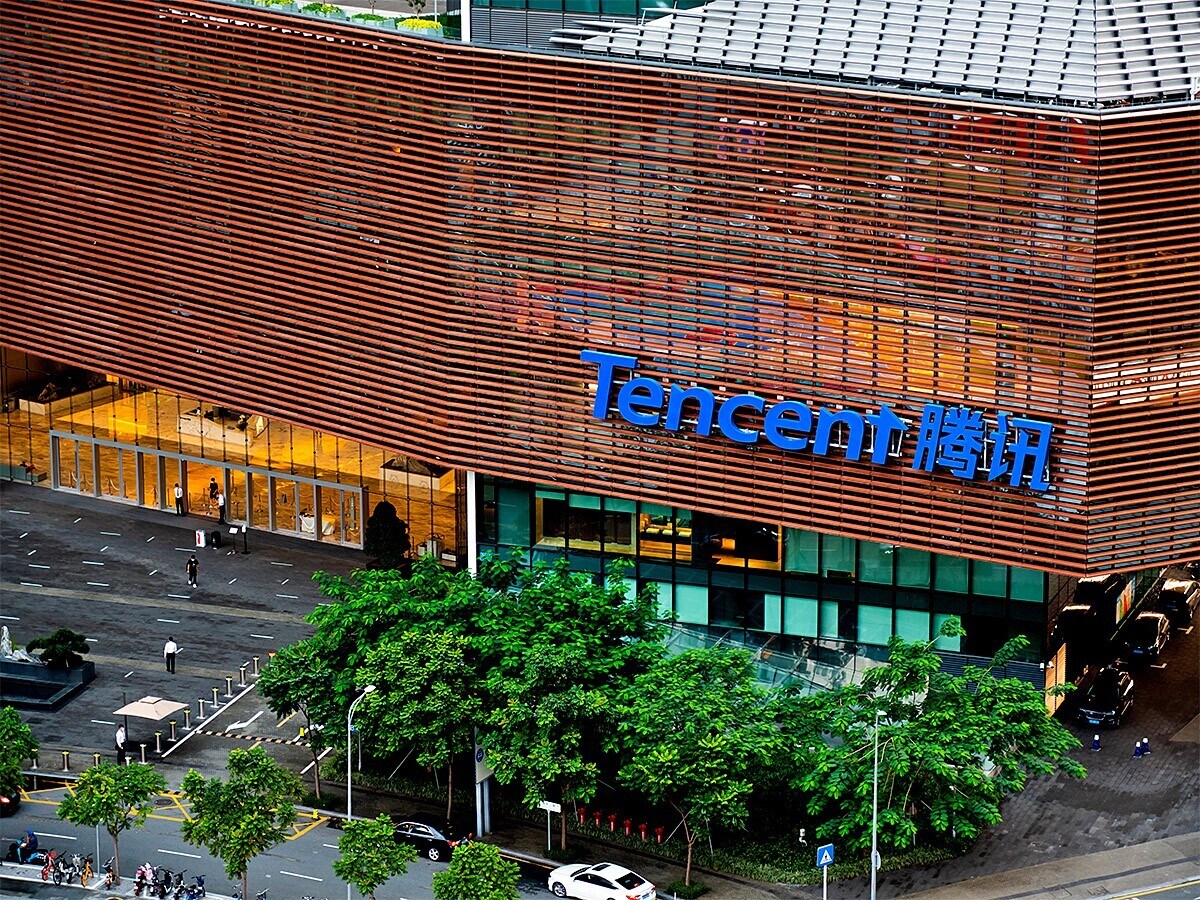China’s regulator has once again penalised a number of the country’s companies for the way they’ve disclosed a number of corporate deals. Alibaba [BABA], Bilibili [HKEX:9626] and Tencent [HKEX:700] have been slapped with fines of RMB500,000 (£57,600) for each separate offence – the current maximum under China's 2008 anti-monopoly law (AML). It hurt the share prices all around, tanking Alibaba as much as 3% in one trading session.
It was reported on 6 January that Alibaba had been fined over a deal to acquire a 25% stake in a Guizhou telecoms company back in 2015. Bilibili had been penalised for failing to disclose its acquisition of photo-editing company Versa in 2020. Tencent, meanwhile, was hit with nine fines by the State Administration for Market Regulation (SAMR), totalling RMB4.5m (£520,000).
The latest round of fines follows the 43 that were handed out back in November. Penalties continue to mount as China’s regulators go back over years-old deals to see whether they contravened the country’s AML. There were 118 antitrust cases opened by regulators in 2021, with combined fines totalling more than RMB20bn (£2.3bn). Eighty-nine of these involved big tech and internet firms, according to data seen by KrAsia.
$2.3billion
Total valuation of the fines of the 118 antitrust cases imposed throughout 2021
Speaking to the South China Morning Post, Henry Gao, an associate professor of law at Singapore Management University, said that “these [latest] fines are significant, as they show the antitrust authorities will continue their trend of aggressive enforcement in the new year, in response to Xi’s call to contain the barbaric growth and disorderly expansion of the platform companies last year.”
Increased fines
In a move to get companies to toe the line, the Chinese government is currently reviewing its AML, which was adopted in 2007 and came into force in 2008.
Under the draft amendment to the AML published last year, future mergers and acquisitions that are deemed anti-competitive will result in fines up to 10% of a company’s prededing year’s revenue. A failure to file or antitrust behaviour will mean an increased fine of up to RMD5m (£576,000).
There’s no guarantee if or when the amendments put forward will be adopted, but SAMR remains keen on stopping supposed monopolistic behaviour while promoting innovation. Yet the country’s government has been accused of stifling growth.
“While the CCP [Chinese Communist Party] has encouraged innovation in China’s private sector, sometimes even encouraging companies to develop and experiment without restriction, the party has retaken control and withdrawn the freedom to innovate in markets where companies have grown to a size that could threaten its authority,” a Taipei Times editorial stated in July last year.
“While the CCP [Chinese Communist Party] has encouraged innovation in China’s private sector, sometimes even encouraging companies to develop and experiment without restriction, the party has retaken control and withdrawn the freedom to innovate in markets where companies have grown to a size that could threaten its authority” - Warby Parke
Isaac Stone Fish, CEO and founder of research firm Strategy Risks, which specialises in Sino investments, wrote in Barron’s in December last year that the crackdown on monopolies could be a cover for the government increasing “its influence over private businesses”.
Fish continued: “Is China really cracking down on monopolies? The record-breaking fines handed out in recent months certainly suggest so … SAMR’s push is not about breaking up tech firms, but breaking down their resistance to Party oversight and control.”
Penalties and delisting
The concern for companies listed in the US is that the longer China’s regulators continue to hand out fines, the possibility of their stocks being delisted grows larger. This has caused shares prices to swing wildly over the last 12 months, such as in the case of Alibaba.
As reported by Bloomberg, the Alibaba share price has pulled back several times in recent months following the multiple conversion of hundreds of thousands of ADR shares to Hong Kong shares. Any future penalties imposed on Alibaba are likely to lead to future conversions and pullbacks in the share.
Nonetheless, there are question marks over whether big tech and internet companies would actually end up delisting like Didi [DIDI]. For starters, a mass exodus of Chinese companies from the US would not be a good look for China, notes a Barron’s report published in December last year.
Needham analyst Vincent Yu told Barron’s that he believes that “on the Chinese regulator’s side, there’s no intention to delist them”. Robin Zhu, analyst at Bernstein, isn’t so sure, saying “the risk of eventual delisting is real”.
Disclaimer Past performance is not a reliable indicator of future results.
CMC Markets is an execution-only service provider. The material (whether or not it states any opinions) is for general information purposes only, and does not take into account your personal circumstances or objectives. Nothing in this material is (or should be considered to be) financial, investment or other advice on which reliance should be placed. No opinion given in the material constitutes a recommendation by CMC Markets or the author that any particular investment, security, transaction or investment strategy is suitable for any specific person.
The material has not been prepared in accordance with legal requirements designed to promote the independence of investment research. Although we are not specifically prevented from dealing before providing this material, we do not seek to take advantage of the material prior to its dissemination.
CMC Markets does not endorse or offer opinion on the trading strategies used by the author. Their trading strategies do not guarantee any return and CMC Markets shall not be held responsible for any loss that you may incur, either directly or indirectly, arising from any investment based on any information contained herein.
*Tax treatment depends on individual circumstances and can change or may differ in a jurisdiction other than the UK.
Continue reading for FREE
- Includes free newsletter updates, unsubscribe anytime. Privacy policy





